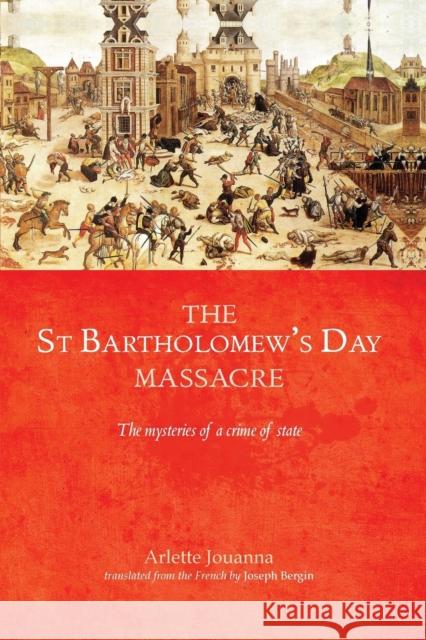The Saint Bartholomew's Day Massacre: The Mysteries of a Crime of State » książka
The Saint Bartholomew's Day Massacre: The Mysteries of a Crime of State
ISBN-13: 9780719097553 / Angielski / Miękka / 2015 / 288 str.
The Saint Bartholomew's Day Massacre: The Mysteries of a Crime of State
ISBN-13: 9780719097553 / Angielski / Miękka / 2015 / 288 str.
(netto: 122,25 VAT: 5%)
Najniższa cena z 30 dni: 121,91 zł
ok. 30 dni roboczych
Bez gwarancji dostawy przed świętami
Darmowa dostawa!
On 18 August 1572, Paris hosted the lavish wedding of Marguerite de Valois and Henri de Navarre, which was designed to seal the reconciliation of France's Catholics and Protestants. Only six days later, the execution, on the orders of the king's council, of the Protestant leaders unleashed a vast massacre by Catholics of thousands of Protestants in Paris and elsewhere. How did the celebration of concord give way so quickly to an explosion of violence, and the preventitive execution of a few leaders to unrestrained carnage? Who were the key players in these terrible events? Arlette Jouanna re-interprets the worst massacre in early modern European history, rejecting most of the established accounts, especially those privileging conspiracy. Instead, she views the decision to resort to summary justice as an attempt, based on reason of state, to preserve the king's endangered authority. The tragedy stimulated widespread reflection on the foundations of royal power, the limits of authority and obedience, and the danger of religious division for France's political traditions. Such reflection helped steer France in the direction of royal absolutism. This nuanced and wide-ranging account, based on extensive new research and a careful examination of the existing historiography, is the most authoritative analysis of its subject, and written in a style that will appeal to both specialist historians and a wider public seeking to examine the European roots of the connections between religion and violence.











